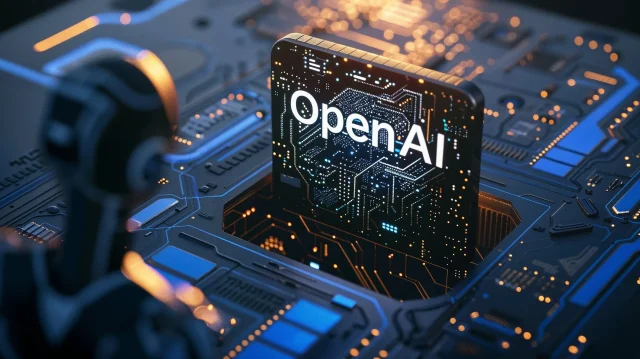The University of Lagos (UNILAG) has been selected as the host for the OpenAI Academy Africa, marking the first such initiative by OpenAI on the continent and cementing Nigeria’s growing role in global artificial intelligence development. The historic announcement was made during the opening ceremony of UNILAG’s 2025 International Week, themed “Equitable Partnerships and the Future of AI in Africa,” which brought together academics, policymakers, industry leaders, and innovators from around the world.
The establishment of the OpenAI Academy Africa at UNILAG represents a strategic commitment to democratizing access to AI education and fostering homegrown innovation across the continent. Emmanuel Lubanzadio, OpenAI’s Africa Lead, said the decision was driven by the university’s rising reputation in emerging technologies, its strong research culture, and its commitment to inclusive, context-driven technological development.
“Truly, AI can be a great equalizer, and that is why OpenAI is adamant about providing access to all,” Lubanzadio said. “We are excited to partner with an institution that believes in using technology to answer real human needs. The OpenAI Academy will nurture African talent and ensure that innovation isn’t concentrated in a few hands, but democratized across communities.”
The academy aims to equip students, researchers, and entrepreneurs with cutting-edge AI tools, training, and ethical frameworks, empowering them to build solutions tailored to African challenges in healthcare, agriculture, energy, governance, and education.
Professor Afolabi Lesi, Deputy Vice-Chancellor (Development Services) at UNILAG, described the partnership as one rooted in co-design, mutual respect, and shared impact. “We are here to move from intent to results—outcomes that can be seen and felt by our students, communities, and nations,” she said. “At UNILAG, internationalization, research, industry engagement, and artificial intelligence meet in a way that is purposeful, ethical, and equitable.”
She emphasized that UNILAG’s appeal lies not only in its academic capability but in its deep contextual understanding of African realities. “Partners choose UNILAG because our expertise is tested in real environments,” she added. “Our engineers work with linguists, our clinicians with social scientists—so that technology answers to people and places, not the other way around.”
Vice-Chancellor Professor Folasade T. Ogunsola hailed the event as a turning point for African institutions in the global AI landscape. “Artificial Intelligence is not the future; it is the present,” she said. “For Africa, AI represents an opportunity to leapfrog limitations and reimagine entire sectors—from education to healthcare to governance.”
Ogunsola urged African universities to shift from being passive consumers of technology to active creators. “The future of AI is not confined to Silicon Valley,” she said to applause. “It is also in Lagos, Nairobi, Kigali, Accra, Cairo, and Johannesburg—in the minds of young Africans who dare to dream, build, and lead.”
The launch of the OpenAI Academy Africa aligns with broader national efforts to expand digital infrastructure. Dr. Bosun Tijani, Nigeria’s Minister of Communications, Innovation, and Digital Economy, affirmed the government’s commitment to inclusive technological growth. Represented by Dr. Olubunmi Ajala, Director of the National Centre for AI & Robotics, Tijani revealed that the Tinubu administration is advancing a national fibre optic project to connect all 774 local government areas with high-speed internet.
“Access to the capacity to innovate and create value must be democratized among all Nigerians,” Tijani stated. “This academy is not just a milestone for UNILAG—it is a beacon for what is possible when vision, investment, and equity converge.”
From the private sector, Yvonne Ike, Managing Director and Head of Sub-Saharan Africa at Bank of America, praised UNILAG for producing globally competitive graduates. “I don’t know what the water you drink here is made of,” she joked, “but your products are doing you proud. When they go up against peers from Harvard or Cambridge, they shine—no complex, no hesitation.”
She stressed that Africa’s advantage in the AI era lies not in technology alone, but in who controls it. “Our future doesn’t depend on the technology itself. It depends on who builds it, deploys it, and benefits from it.”
With the OpenAI Academy Africa now set to take root in Akoka, the University of Lagos is poised to become a continental epicenter for AI education, research, and ethical innovation—proving that the next wave of global technological leadership may well be written in Yoruba, Swahili, and Pidgin before it reaches English.
Follow us on Instagram.
https://www.instagram.com/businessnewsng?igsh=ZXpweTdjOGF1ZXdu





















